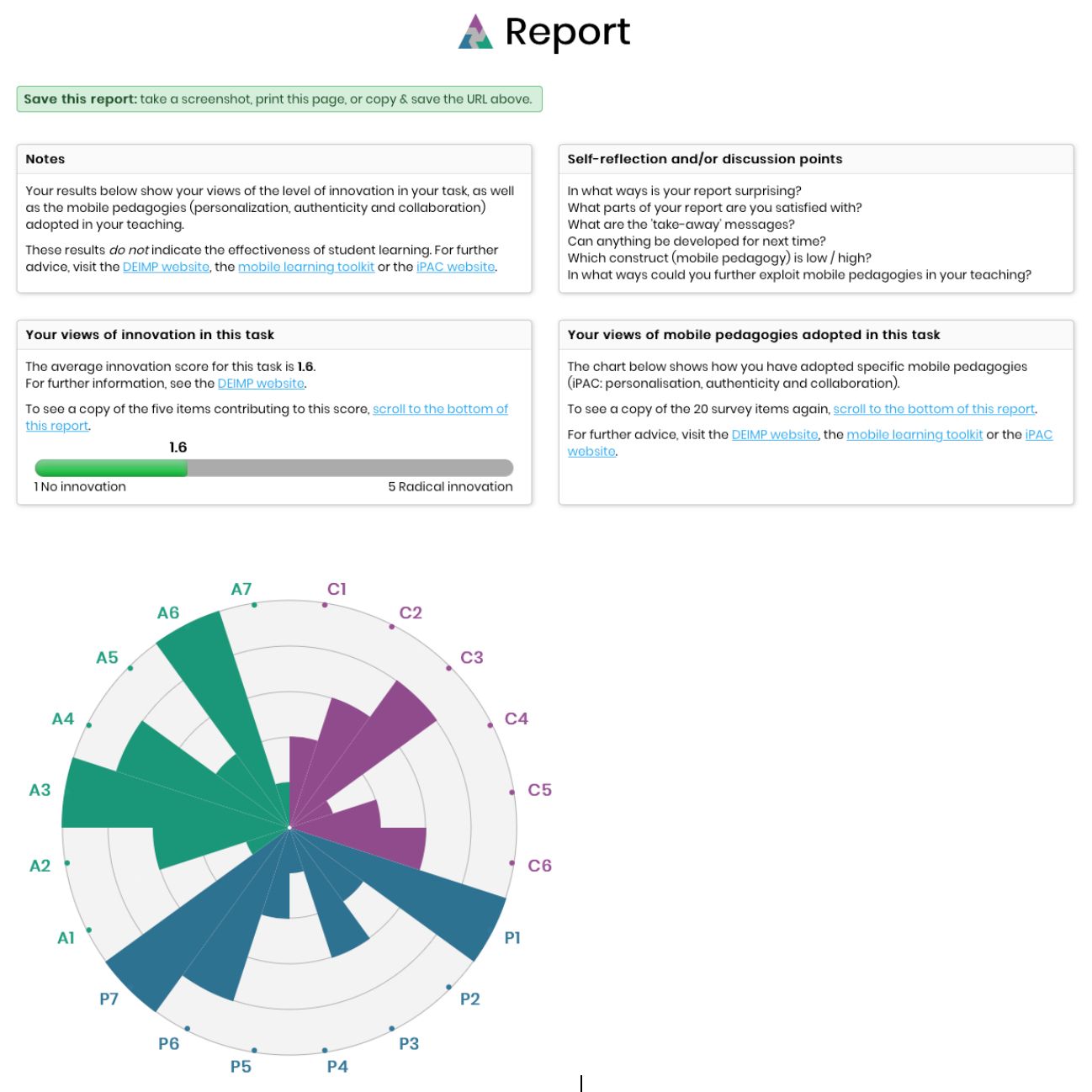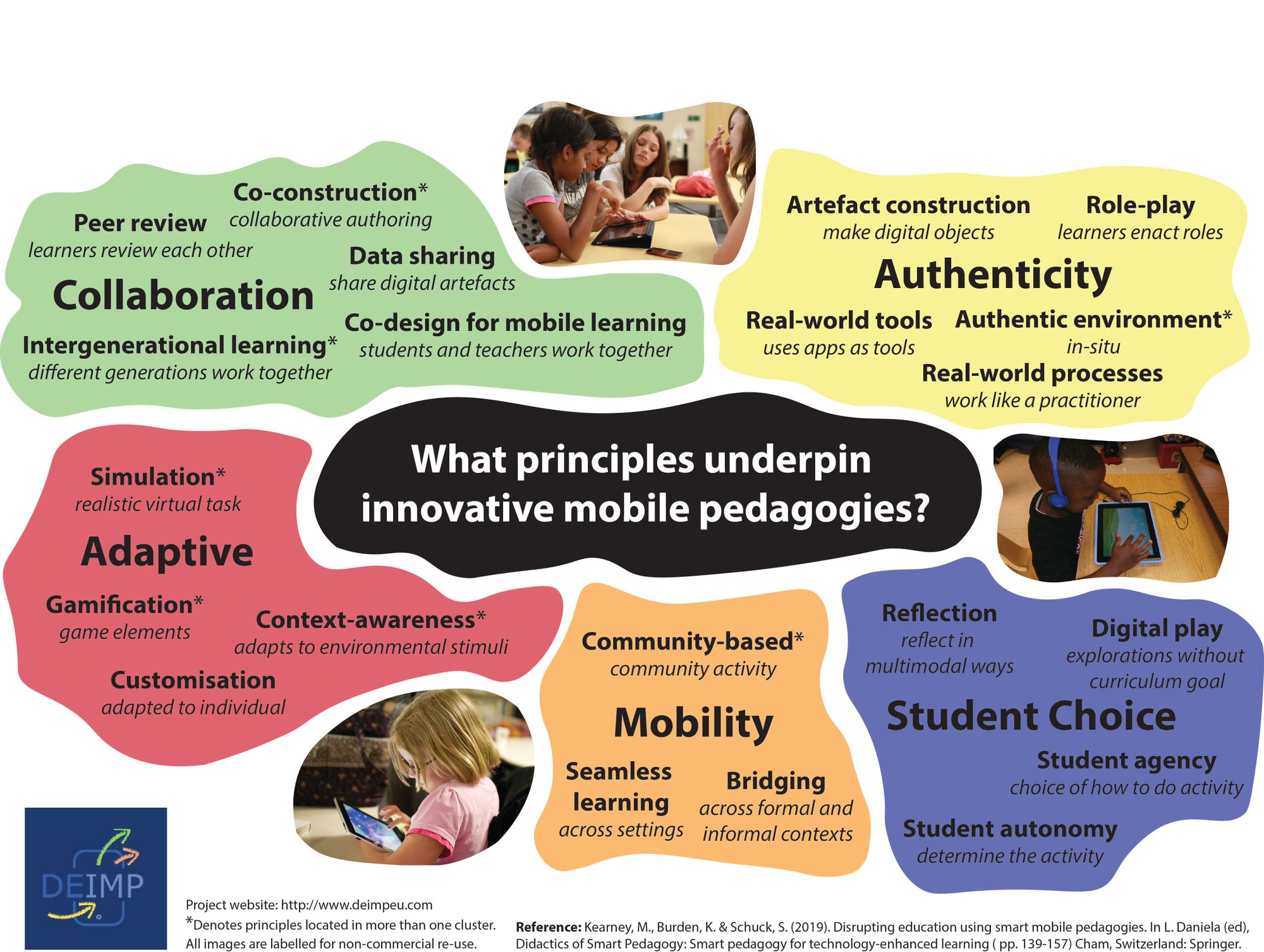
A series of THREE freely available online resources, underpinned by the iPAC framework, can be used by teachers wishing to improve their digital teaching approaches. The validated online iPAC surveys (see Resource Two) also will be of interest to education researchers wishing to investigate m-learning. The 3 resources are outlined below.
Resource One (of 3)
A mobile learning toolkit (Burden & Kearney, 2018). This resource was developed through a major EU-funded project, Mobilising and Transforming Teacher Educators’ Pedagogies (MTTEP), led by the University of Hull, UK. It includes video cases illustrating the main features of the iPAC Framework, exemplar eBooks illustrating the use of mobile devices in education, and an online rubric for evaluating the pedagogic value of Education apps.
Resource Two (of 3)
A set of validated online iPAC surveys (Kearney et al, 2019) are accessible via the homepage of this website. These robust survey instruments were developed and validated during a major Australian Research Council (ARC) project, led by UTS, titled Optimising Teaching and Learning with Mobile-Intensive Pedagogies. The surveys can be used by teachers or researchers wishing to evaluate either task-specific or typical mobile learning practices using robust, rigorous instruments. There are student and teacher versions of these surveys for triangulation of data.
The surveys contain four sections. Sections A and D collect background data and information about the m-learning task(s). The student surveys contain fewer items in these background sections. Section B is the core of the surveys and contains the validated iPAC scales: 20 items in the teacher version and 21 items in the student version. Section C consists of additional items developed from the literature on m-learning and innovation. The innovation item in the surveys was developed during the DEIMP project (see Resource 3 further down this page) and elicits participants’ views of innovation.
Teachers receive an auto-generated report after submitting their responses, as shown in the image below. It contains polar charts based on responses to the iPAC scale items, and an innovation score based on responses to the innovation item. If teachers completing the specific task survey choose to implement the corresponding student survey with their class, they also receive a class report based on average scores across all students in the class.

Resource Three (of 3)
A professional learning app for guiding innovative mobile digital practices. It is currently undergoing final testing and has been created during a second EU-funded project: Designing and Evaluating Innovative Mobile Pedagogies (DEIMP), also led by the University of Hull. The app supports educators and pre-service teachers in designing and evaluating creative and innovative m-learning episodes for their students. Activities embedded in the app are informed by the iPAC Framework. Accompanying the app is an evidence-based set of principles for innovative digital pedagogies (Burden, Kearney, Schuck, & Hall, 2019). These 21 principles are shown below and have been aligned with the iPAC Framework (see Ch 14 of our new book: Kearney, Burden & Schuck, 2020).

